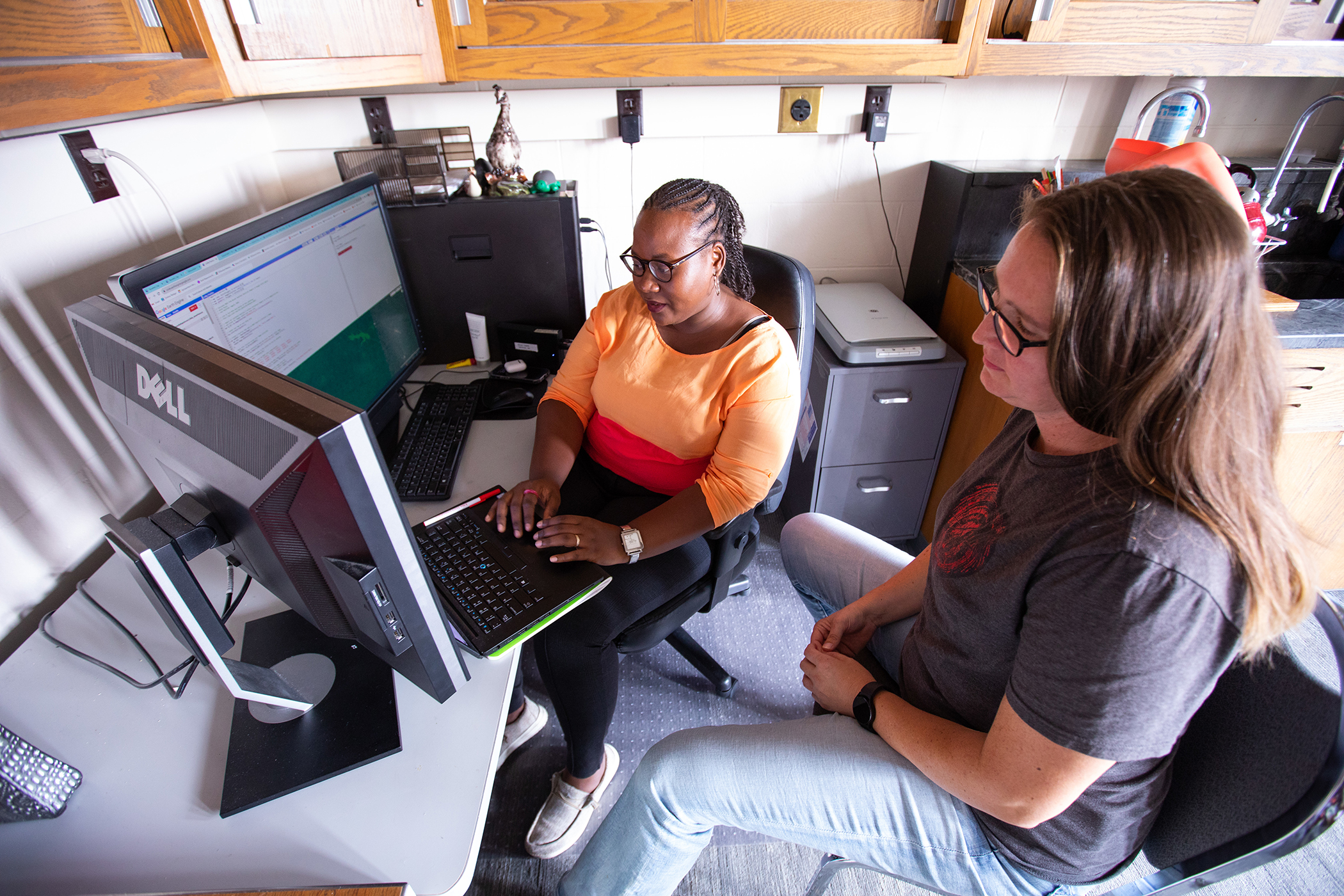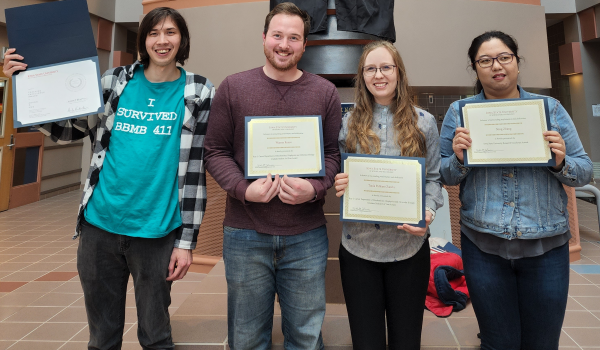Interdepartmental Program
No
Deepen your understanding of molecular processes and their applications in health and biotechnology with Iowa State University's Biochemistry graduate program. Our program offers a rigorous curriculum designed to prepare students for careers in biochemical research, pharmaceuticals, biotechnology, and academic teaching.
Collaborate closely with esteemed faculty on cutting-edge studies in protein structure and function, enzymology, metabolic pathways, and molecular genetics. Gain hands-on experience through advanced laboratory work, interdisciplinary research projects, and collaboration with industry partners. Whether your interests lie in drug discovery, metabolic engineering, or biochemical education, Iowa State provides the expertise and resources to excel in advancing our understanding of life at the molecular level.
Degrees Offered:
- Doctor of Philosophy (Ph.D.)
- Master of Science (M.S.)
- Certificate
Area(s) of Specialization:
- Biochemistry
- Cell Biology
- Computational Biology
- Enzymology
- Gene Regulation
- Immunobiology
- Metabolic Biochemistry
- Molecular Biology
- Nutritional Biochemistry
- Plant Biochemistry
- Signal Transduction
- Structural Biology
How long does it take to earn a degree?
- Median time to earn the doctorate: 5.8 years (Methods)
- Median time to earn the master’s: 1.0 year (Methods)
Learning Goals
- The Master's and Ph.D. degrees with thesis are designed to train students in the ability to independently conceive and carry out original research in an area of interest. Advanced degree graduates become qualified to pursue or to continue basic and applied research careers in academia, government, and industry
- Demonstrate understanding and thorough knowledge of the literature relevant to the area of study
- Define research objectives of significance and develop testable hypotheses related to those objectives
- Conduct research by appropriate means to test hypotheses
- Clearly and accurately communicate information (as for instance, in the publication of research findings or in classroom teaching)
- Understand how skills acquired by activities related to coursework, research, teaching, and scholarship facilitate the initial step toward a variety of lifetime career goals
- The Graduate Certificate learning goals are to provide graduates a mechanism for formal recognition of focused graduate study in a specialized area that is less comprehensive than required for a Master's degree
515-294-3317
Allison Ringholz
bbmbapps@iastate.edu
Roy J. Carver Department of Biochemistry, Biophysics, and Molecular Biology
Graduate Programs
1210 Molecular Biology Building
2437 Pammel Drive
Iowa State University
Ames, IA 50011-1079
Program Homepage
Program Handbook
Application Requirements
Application Deadlines:
January 7 for full consideration for PhD rotation program that begins in the fall of that year. No deadline for direct admission in fall, spring or summer to a faculty research group for Master's or PhD.
Application Details:
This program is open to domestic and international students.
Application Instructions
Admission Requirements
Graduate College Requirements:
- 4 year Bachelor’s degree (or equivalent)
- Academic Records/Transcripts
- Minimum 3.0 GPA (Program may alter requirement.)
- Proof of English Proficiency.
Program Specific Requirements:
- Program Requires GRE: No
- Program Requires GMAT: No
- Program Will Review Without TOEFL or IELTS: No
International Requirements:
- Financial Statement: Application
- English Proficiency Minimum:
| TOEFL Paper (PBT) |
550 |
| TOEFL Internet (iBT) |
79 |
| IELTS |
6.5 |
| PTE |
53 |
| Duolingo (approved through spring 2026) |
115 |
Does this Program Offer a Distance Option?
Yes
Program offers a Coursework Only?
Yes
Program Director
swn@iastate.edu

